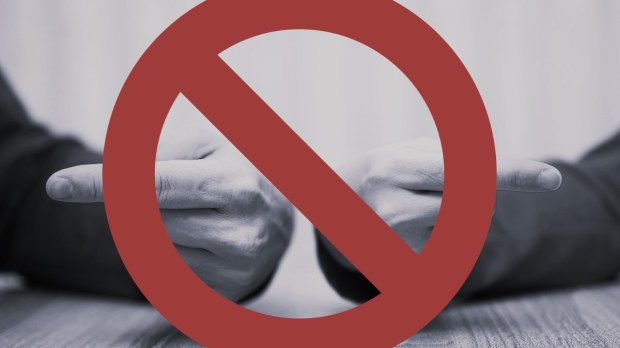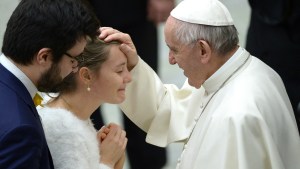Lenten Campaign 2025
This content is free of charge, as are all our articles.
Support us with a donation that is tax-deductible and enable us to continue to reach millions of readers.
This coming Friday we celebrate the feast of the first martyrs of the Roman Church, those men and women who lost their lives for their faith during the Christian persecution under the emperor Nero. Two thoughts come to my mind every year when we celebrate this feast.
First, these martyrs are anonymous. Their names are lost to history. Even in their own day they earned no fame for their sacrifice. They were not considered heroes by their contemporaries outside the Church. The Romans arrested them, and they simply disappeared.
Second, those early martyrs made their sacrifice freely. If they had denied their faith, even temporarily, they could have easily avoided death. They made a conscious, deliberate choice to take a stand.
Why were they willing to undergo such thankless suffering?
If I had to wager a guess, I’d say it was because those unnamed Christians did not think of their sacrifices as being on behalf of an idea, set of rules, or moral commitment. They sacrificed because they considered Jesus their friend. Friendship is not an object that can be picked up or set down at our convenience.
Avoiding sacrifice
I have to admit that, even for a very good friend, I would struggle with making anything close to such a sacrifice. I’d like to think that, for my wife or children, I would. (Hopefully I’ll never have to find out.) Even in that case, though, I’m sure I would have a vigorous internal debate. Such is the effect of selfishness and my addiction to creature comforts.
When it comes to making a sacrifice for a friendship, it’s easy enough to convince ourselves that doing so would be a waste. This or that friendship isn’t valuable enough, I’ll tell myself. I’m too busy and it isn’t worth it. I’m not even speaking here of huge sacrifices. I’m talking about small ones – taking the time to make a phone call and check in, making the effort to listen, or to stay in touch. I’ve heard people claim they’re not going to reach out to a friend because that friend hasn’t paid enough attention to them in the past, or they aren’t going to invite a friend over for dinner because that person never reciprocates.
I admit, I used to think this way. If a friend had trouble staying in touch with me, I’d write him off. If I felt he didn’t acknowledge me enough, I would ignore him in return. I’ve come to understand, however, that life has a way of becoming overwhelming for people. If I have to make a small sacrifice of being the first to reach out and suggest we grab coffee and catch up, it’s not that big a deal.
In marriages, small sacrifices are even more essential – cleaning the kitchen, taking out the trash, doing the laundry, choosing what to eat for dinner, how to pay the bills. In my vocation as a priest, I often work with engaged couples to prepare them for marriage. The biggest red flag I see is when couples refuse to make those small sacrifices for each other. They make charts of who will pay what bills because they don’t want to mingle their finances, have a chore chart so they are all divvied up equally, and carefully arrange who gets control of various areas of their lives. If one person benefits in one area, then equivalent compensation is demanded in another.
In my opinion, these couples aren’t ready for marriage. They may not even actually be friends yet. They’re still counting the cost. The relationship, such as it is, is based not on mutual sacrifice but, rather, on how much each person is getting out of it, carefully arranging matters so that neither person feels aggrieved.
I do wonder if, generally speaking, we have lost our commitment to what it really takes to make a relationship fruitful. The modern world encourages us to be self-centered, and we’re taught from a young age to think of our own well-being first. We easily discard friendships and even marriages at the first hint that sacrifice might be required.
What the first martyrs can teach us
This thought is what brings me back to those early Roman Martyrs. They form a stark contrast to the modern view of relationships. They gave everything they had for friendship. Recently, we had ordinations of new priests in St. Louis and a friend of mine, Father Gerber, preached at the first Mass of one of those new priests. In his homily, he points out that priesthood isn’t just another job. Offering the Mass isn’t an example of a man who is simply working. Instead, Father Gerber says, a priest is meant to display to the faithful that he is, “in love with our friend.” Christ, as priest, makes the ultimate sacrifice for us because that is the basis of establishing friendship. It is the same with all of our friendships. Sacrifice must be the basis, otherwise they are not true relationships.
For so long, I wasn’t ready for any kind of real relationship because I wasn’t ready to make those sacrifices. I was too selfish. Even now that I know better, I’m not a perfect friend all of the time, or even most of the time. I’m not always there for my friends when they need me. I’m not able to give them everything they need. At times, I fall into selfishness and refuse to make the myriad, small sacrifices that are necessary.
I say this as someone who struggles very much with authentic friendship and sees in those early Roman Martyrs, a beautiful example to follow.
I may not be perfect, but I can at least promise that, to the best of my ability, I will attempt to form the basis of our friendship on sacrifice. Those sacrifices won’t be used as bargaining chips for some future benefit I’ll claim. To the best of my ability, they will remain unnamed. I won’t even mind if they remain unrecognized. I say this not because I’m an amazing guy who has friendship all figured out. I say this as someone who struggles very much with authentic friendship and sees in those early Roman Martyrs, a beautiful example to follow.
It’s not all about us. It’s about others. This is the grace of friendship. It’s why we pour ourselves, heart and soul, into lasting relationships. We make the sacrifices for those we love, and they make their sacrifices for us. The martyrs gave everything for their friend Jesus, and he gave everything for them. Who gave more?
I don’t think anyone was counting.



